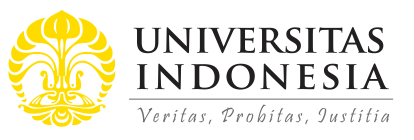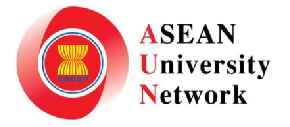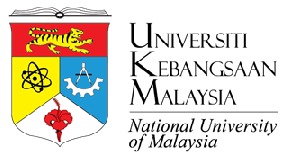
Abstract
Community development in Lio Village performed by Faculty of Medicine Universitas Indonesia students aimed to improve the health status of villagers. Because economy correlates with health, an economic intervention may increase the health status of the people. Based on this, an entrepreneurship program was initiated as a part of a community development program. This study is qualitative study that was conducted between July 2020 and February 2021. The intervention consisted of asynchronous webinar sessions, workshops, and business competition. Data were gathered from post-test questionnaires through a Google form. The winners were chosen according to the business ideas and given prizes. Then, a follow-up interview was conducted to measure the benefits of the intervention. For the results, more than 50% of the participants understood the theory by answering correct questions in the post-evaluation forms. The participants also reported feeling happier and having better mental health. Of the 88 medical students who volunteered in the event, 78.2% felt a tremendously beneficial experience of community empowerment and 21.8% felt they have experienced community empowerment. In conclusion, remote-online community development intervention may be a solution during the COVID-19 pandemic. By acknowledging the importance of the economic aspect to health and improving aspects that influence health holistically, both economic and health states of the people may be improved.
References
Andrina, M., Musthofa, F.K., Kusumandari, S.A., Fillaili, R., Izzati, A.R., Oley, J.D.B., Farhani, A., Basnett, B.S., Juniwaty, K.S., & Samudra, R.R. (2021, May). Analysis of the Social and Economic Impacts of COVID-19 on Household and Strategic Policy Recommendations for Indonesia. Smeru. https://smeru.or.id/en/content/analysis-social-and-economic-impacts-covid-19-households-and-strategic-policy
Anindyajati, G., Wiguna, T., Murtani, B. J., Christian, H., Wigantara, N. A., Putra, A. A., Hanafi, E., Minayati, K., Ismail, R. I., Kaligis, F., Savitri, A. I., Uiterwaal, C. S. P. M., & Diatri, H. (2021). Anxiety and Its Associated Factors During the Initial Phase of the COVID-19 Pandemic in Indonesia. Frontiers in Psychiatry, 12, 634585. https://doi.org/10.3389/fpsyt.2021.634585
Arebalos, M. R., Botor, F. L., Simanton, E., & Young, J. (2021). Required Longitudinal Service-Learning and Its Effects on Medical Students’ Attitudes Toward the Underserved. Medical Science Educator, 31(5), 1639-1643. https://doi.org/10.1007/s40670-021-01350-7
Baker, N., Cutler, M., & Sopdie, E. (2020). Perceived Influence of Medical Students’ Community Health Assessment Projects. Family Medicine, 52(8), 586-591. https://doi.org/10.22454/FamMed.2020.381413
Bialowolski, P., Weziak-Bialowolska, D., Lee, M. T., Chen, Y., VanderWeele, T. J., & McNeely, E. (2021). The role of financial conditions for physical and mental health. Evidence from a longitudinal survey and insurance claims data. Social Science & Medicine, 281, 114041. https://doi.org/10.1016/j.socscimed.2021.114041
Bloom, D. E., Canning, D., Kotschy, R., Prettner, K., & Schünemann, J. (2021). Health and Economic Growth: Reconciling the Micro and Macro Evidence. SSRN Electronic Journal. https://doi.org/10.2139/ssrn.3301689
Bor, J., Cohen, G. H., & Galea, S. (2017). Population health in an era of rising income inequality: USA, 1980–2015. The Lancet, 389(10077), 1475-1490. https://doi.org/10.1016/S0140-6736(17)30571-8
BPS. (2021, Feb). Profil Kemiskinan di Indonesia September 2020. BPS.
CDC. (n.d.) Social Determinants of Health. Retrieved September 12, 2021. https://www.cdc.gov/publichealthgateway/sdoh/index.html
Cetak Biru Community Development FKUI. Departemen Pengabdian Masyarakat BEM IKM FKUI 2019. http://bem.fk.ui.ac.id/
Choi, L. (2009). Financial Stress and Its Physical Effects on Individuals and Communities. Community Development and Investment Review, 5(3),120-122. https://econpapers.repec.org/article/fipfedfcr/y_3a2009_3ap_3a120-122_3an_3av.5no.3.htm
Essa-Hadad, J., Murdoch-Eaton, D., & Rudolf, M. C. J. (2015). What impact does community service learning have on medical students’ appreciation of population health? Public Health, 129(11), 1444-1451. https://doi.org/10.1016/j.puhe.2015.05.009
Frakt, A. B. (2018). How the Economy Affects Health. JAMA, 319(12), 1187-1188. https://doi.org/10.1001/jama.2018.1739
Haidar, A., Erickson, S. G., & Champagne-Langabeer, T. (2020). Medical Students’ Participation in Longitudinal Community Service During Preclerkship Years: A Qualitative Study on Experiences and Perceived Outcomes. Journal of Medical Education and Curricular Development, 7, 2382120520936610. https://doi.org/10.1177/2382120520936610
Hasan, A., Susanto, H., Kasim, M. F., Nuraini, N., Lestari, B., Triany, D., & Widyastuti, W. (2020). Superspreading in early transmissions of COVID-19 in Indonesia. Scientific Reports, 10. https://doi.org/10.1038/s41598-020-79352-5
Hassan, M. F., Hassan, N. M., Kassim, E. S., & Said, Y. M. U. (2021). Financial Wellbeing and Mental Health: A Systematic Review. Studies of Applied Economics, 39(4), Article 4. https://doi.org/10.25115/eea.v39i4.4590
Hikmawati, I., & Setiyabudi, R. (2021). Epidemiology of COVID-19 in Indonesia: Common source and propagated source as a cause for outbreaks. The Journal of Infection in Developing Countries, 15(05), 646-652. https://doi.org/10.3855/jidc.14240
Indrayani, Y.A., Wahyudi, T. (2019). Situasi Kesehatan Jiwa di Indonesia. Pusat Data dan Informasi Kementerian Kesehatan RI. https://pusdatin.kemkes.go.id/article/view/20031100001/situasi-kesehatan-jiwa-di-indonesia.html
Khullar, D., & Chokski, D. A. (2018). Health, income, and poverty: Where we are and what could help. Health Affairs, October.
McCartney, G., Hearty, W., Arnot, J., Popham, F., Cumbers, A., & McMaster, R. (2019). Impact of Political Economy on Population Health: A Systematic Review of Reviews. Am J Public Health, 109(6), e1-e12. https://doi.org/10.2105/AJPH.2019.305001
Ministry of Investment. (n.d.). Small and medium enterprises in Indonesia. https://www.bkpm.go.id/en/publication/detail/news/surviving-as-small-and-medium-enterprises-in-indonesia
Naik, Y., Baker, P., Walker, I., Tillmann, T., Bash, K., Quantz, D., et al. (2017). The macro-economic determinants of health and health inequalities—umbrella review protocol. Syst Rev 6, 222. https://doi.org/10.1186/s13643-017-0616-2
Okayama, M., & Kajii, E. (2011). Does community-based education increase students’ motivation to practice community health care? - A cross sectional study. BMC Medical Education, 11(1), 19. https://doi.org/10.1186/1472-6920-11-19
Osypuk, T. L., Joshi, P., Geronimo, K., & Acevedo-Garcia, D. (2014) Do social and economic policies influence health? A review. Curr Epidemiol Rep, 1(3), 149-164. https://doi.org/10.1007/s40471-014-0013-5
Păunică, M., Manole, A., Motofei, C., & Tănase, G.-L. (2019). An overview on the correlation between the economic status of a country and the population’s health indicators. Proceedings of the International Conference on Business Excellence, 13(1), 1058-1069. https://doi.org/10.2478/picbe-2019-0092
Portal Resmi Pemerintah Kota Depok. (n.d.). Retrieved May 19, 2022, from https://www.depok.go.id/geografi
Rahn, J. (2021). Pivot your community outreach efforts online during the pandemic. Campus Security Report, 17(11), 1-7. https://doi.org/10.1002/casr.30759
Saturwa, H. N., Suharno, S., & Ahmad, A. A. (2021). The impact of Covid-19 pandemic on MSMEs. Jurnal Ekonomi Dan Bisnis, 24(1). https://doi.org/10.24914/jeb.v24i1.3905
Shuchman, M. (2020). Low- and middle-income countries face up to COVID-19. In Nature medicine (Vol. 26, Issue 7). https://doi.org/10.1038/d41591-020-00020-2
Sonoda, K. (2021). Virtual Community Outreach Program during the pandemic of COVID-19. Journal of General and Family Medicine, 22(4), 229–229. https://doi.org/10.1002/jgf2.424
Sujarwoto, S., & Maharani, A. (2020) Participation in community-based health care interventions (CBHIs) and its association with hypertension awareness, control and treatment in Indonesia. PLoS ONE, 15(12), e0244333. https://doi.org/10.1371/journal.pone.0244333
Vahedi, S. (2010). World Health Organization Quality-of-Life Scale (WHOQOL-BREF): Analyses of Their Item Response Theory Properties Based on the Graded Responses Model. Iranian Journal of Psychiatry, 5(4), 140–153.
WHO. (2021). Novel Coronavirus. https://www.who.int/indonesia/news/novel-coronavirus
WHO. (n.d.). Social determinants of health. Retrieved May 20, 2022, from https://www.who.int/health-topics/social-determinants-of-health#tab=tab_1
WHO Commission on Macroeconomics and Health & World Health Organization. (2001). Macroeconomics and health: Investing in health for economic development: Executive summary / report of the Commission on Macroeconomics and Health. https://apps.who.int/iris/handle/10665/42463
Yawan, A. K. (2021). Update Persebaran Covid-19 Depok, 5 September 2021: 104.009 Positif, 100.448 Sembuh, 2.058 Meninggal Dunia. Retrieved Mar 19, 2022, from https://depok.pikiran-rakyat.com/lokal-depok/pr-092535991/update-persebaran-covid-19-depok-5-september-2021-104009-positif-100448-sembuh-2058-meninggal-dunia
Recommended Citation
Triastari, Stella K.; Chandra, Angelina Patricia; Wibisono, Andito M.; and Friska, Dewi
(2022).
Initiating Entrepreneurship to Improve Health amongst People in Lio Village during The COVID-19 Pandemic: A Qualitative Study.
ASEAN Journal of Community Engagement, 6(1), 207-227.
Available at: https://doi.org/10.7454/ajce.v6i1.1178







